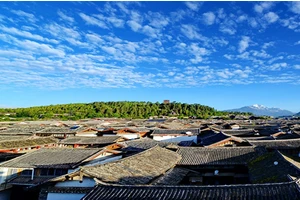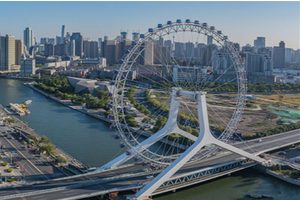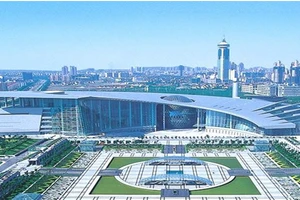Present situation of Dali tourism
As an important pillar industry in the southwest of China, Yunnan tourism has achieved remarkable development results in recent years. At present, the present situation of Yunnan tourism can be summarized from the following aspects:
1. Rich tourism resources: Yunnan Province is rich in natural and cultural tourism resources, such as the world-famous Old Town of Lijiang, Dali Ancient City, Yulong Snow Mountain and Lugu Lake, which attracts a large number of domestic and foreign tourists to visit. In addition, Yunnan also has many national cultures and folk customs, such as the Water-splashing Festival of the Dai people and the Torch Festival of the Yi people, which provide unique travel experiences for tourists.
2. Rapid development of tourism: In recent years, the Yunnan provincial government has attached great importance to the development of tourism, issued a series of policies and measures, and increased investment and support for tourism. According to statistics, in 2019, Yunnan received 664 million tourists, up 11.5% year-on-year, and achieved a total tourism revenue of 899 billion yuan, up 20.3% year-on-year. Tourism has become an important engine of economic development in Yunnan Province.
3. Perfection of tourism industry chain: With the rapid development of tourism, Yunnan tourism industry chain is becoming more and more perfect. From tourism planning, scenic spot development, hotel accommodation, catering services to tourism shopping, leisure and entertainment, a relatively complete industrial chain has been formed. This provides a strong guarantee for the sustainable development of Yunnan tourism.
4. Combination of tourism and poverty alleviation: Yunnan provincial government combines tourism with poverty alleviation, and promotes economic development in poverty-stricken areas by developing rural tourism and ethnic cultural tourism, helping poor people get rid of poverty and become rich. This practice has been highly praised by the state and all walks of life.
5. Problems faced by tourism: Although Yunnan's tourism industry has made remarkable achievements, it still faces some problems and challenges. Such as over-exploitation of tourism resources, irregular tourism market order and uneven quality of tourism services. These problems need the joint efforts of Yunnan provincial government and tourism industry, strengthen supervision and guidance, and promote the healthy and sustainable development of tourism.
In a word, Yunnan's tourism industry has made remarkable achievements in recent years, showing a good development trend in terms of rich tourism resources, perfect industrial chain and combination with poverty alleviation. However, in the face of the problems and challenges in the development of tourism, the Yunnan provincial government and the tourism industry need to continue their efforts to promote the tourism industry to achieve higher quality and more sustainable development.
As the capital of Yunnan Province in China, Kunming is known as the "Spring City" and is famous for its spring-like seasons and pleasant climate. Kunming is an important tourist city in the western part of China, with rich natural landscapes and diverse cultural heritage. To evaluate the present situation of tourism in Kunming, we can analyze it from the following aspects:
Advantages of natural resources: There are famous natural landscapes such as Shilin, Dianchi Lake and Longmen Mountain around Kunming, attracting a large number of domestic and foreign tourists. Shilin is a world natural heritage, which is famous for its peculiar karst landform. Dianchi Lake is the mother lake of Kunming, surrounded by scenic spots such as the ridge dam and Xishan Mountain. In addition, Kunming is the gateway to other tourist hotspots in Yunnan, such as Dali, Lijiang and Shangri-La.
Rich cultural heritage: Kunming has not only beautiful natural scenery, but also profound historical and cultural heritage. For example, the Golden Temple, Yuantong Temple, Cuihu and other historical and cultural attractions, as well as various ethnic villages, such as Yunnan Ethnic Village, show Yunnan's diverse ethnic culture and traditional lifestyle.
Tourism infrastructure: In recent years, Kunming municipal government has invested heavily in tourism infrastructure, including transportation, hotels, restaurants and other service facilities, to enhance the experience of tourists. The expansion of kunming changshui international airport makes Kunming an important aviation hub in southwest China, which facilitates the arrival of tourists.
Tourism development policy: the government's support and promotion of tourism is also an important factor in the development of tourism in Kunming. For example, the introduction of various preferential tourism policies and the holding of international tourism festivals have improved the visibility and attractiveness of Kunming.
Challenges: Despite the rapid development of tourism in Kunming, it also faces some challenges. For example, the pressure of environmental protection, standardized management of tourism market, diversification and innovation of tourism products, etc. With the development of tourism, how to balance economic benefits and environmental protection and ensure sustainable development is a problem that Kunming tourism needs to solve.
Impact of epidemic situation: The epidemic situation in COVID-19 has had a great impact on global tourism, and Kunming is no exception. During the epidemic, tourism suffered heavy losses, but with the control of the epidemic and the gradual relaxation of epidemic prevention measures, Kunming tourism is gradually recovering.
Generally speaking, Kunming tourism has obvious advantages in natural resources, cultural heritage, infrastructure and policy support, but it also faces challenges such as environmental protection, market management and product innovation. In the future, Kunming needs to constantly innovate tourism products and services on the basis of protecting the natural environment and cultural heritage, so as to enhance the tourism experience and realize the sustainable development of tourism.






